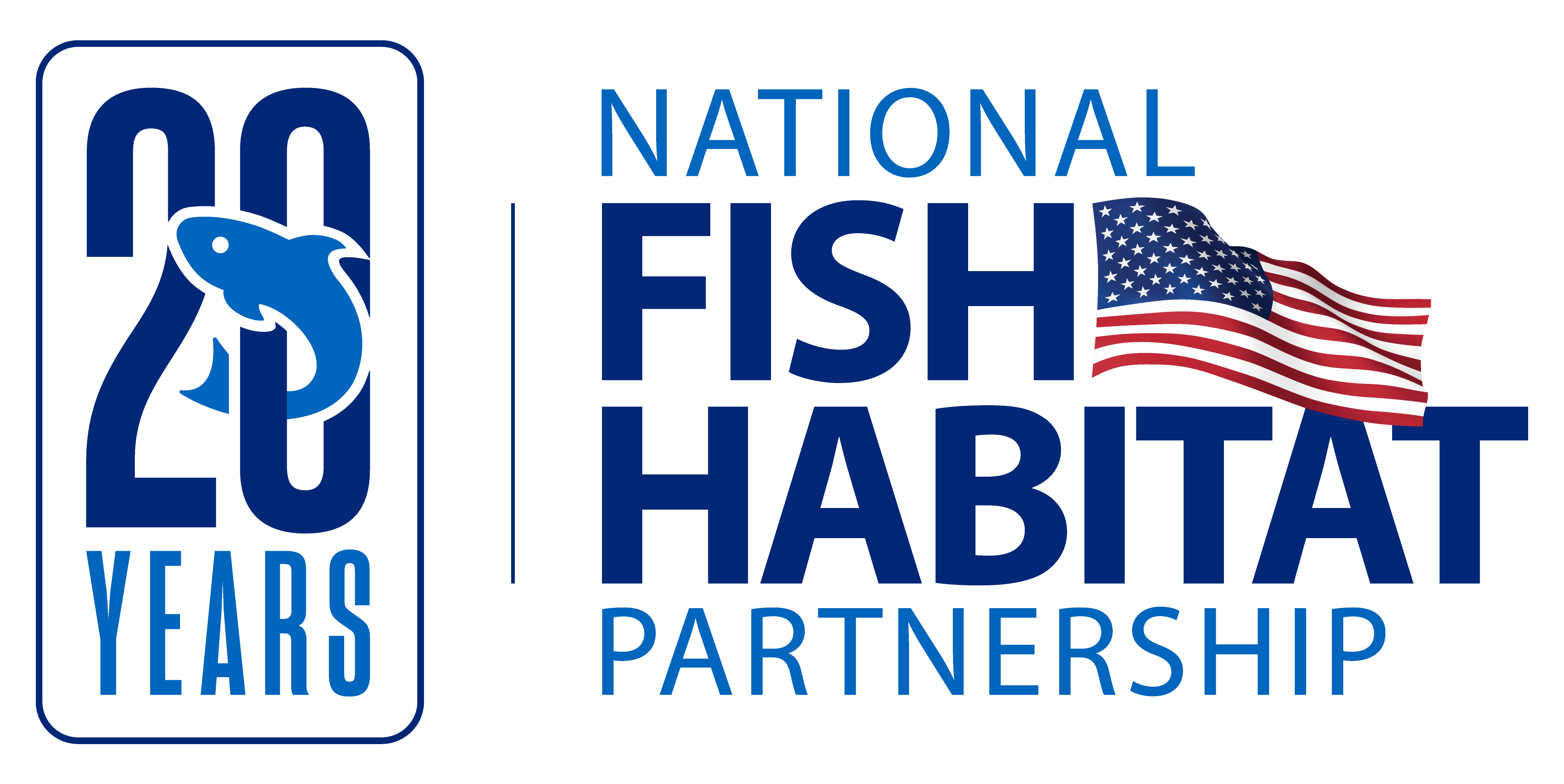
11/7/2023 4:38 AM
(Washington, DC) - In September 2023, the National Fish Habitat Board (Board) announced seven National Conservation Priorities (NCPs) for fiscal year (FY) 2025. NCPs are set by the National Fish Habitat Partnership (NFHP) to guide the work of the Fish Habitat Partnerships (FHPs), the Board, and fish habitat conservation work at large for FY 2025. The NCPs remain unchanged from the 2024 NCPs established by the Board
The FY 2025 NCPs include the many types of projects and activities that improve fish habitat. NFHP is made up of 20 FHPs, each with unique or individual goals and objectives. The systems and species we seek to conserve are diverse, and so are the strategies that are needed to meaningfully address our fish habitat conservation goals.
The NFHP National Conservation Priorities for FY 2025 are as follows:
Conserve waters and habitats where all processes and functions are operating within their expected range or natural variation. - This priority focuses action on acquiring or protecting in other ways fish habitats that are currently functioning and are considered intact for the purpose of preventing future degradation. In essence: protect what is currently working.
Conserve hydrologic conditions for fish. - This priority focuses on ensuring that appropriate hydrologic (annual and daily flows and water levels) and hydrodynamic (current or velocity) conditions are always available to allow fish to optimize their production. This is accomplished by rehabilitating degraded and improving engineered hydrographs and hydrodynamic conditions to ensure all needed fish habitats are available at the appropriate times.
Conserve physical and living habitats and features that support viable and sustainable species and/or populations in impacted or at-risk systems. - This priority focuses on protection, rehabilitation, and/or enhancement of those critical habitat features within a waterbody that are necessary to support ecological function and processes such as structure, vegetation, and habitat complexity that may be lacking, may have been altered, or simply may not be functioning effectively.
Reconnect fragmented fish habitats. - When aquatic habitats lack full connectivity, fish cannot freely move among the places they need to complete their life cycle and maximize their production. This priority is focused on identifying, removing, rehabilitating, or otherwise addressing anthropogenic barriers so they no longer restrict fish movement and instead allow fish to access habitats, migrate, locate refugia, and seek food and mates.
Conserve water quality for fish. - This priority focuses on efforts to conserve the physical, chemical, and biological aspects of water quality, mitigate impairments, and restore degraded conditions to support improved fish habitat.
Support the structure and function of Fish Habitat Partnerships. - The FHPs conduct the foundational work necessary to ensure that NFHP achieves its mission to protect, restore and enhance the nation’s fish and aquatic communities through partnerships that foster fish habitat conservation and improve the quality of life for the American people. This priority focuses on supporting strong and effective FHPs and their unique approaches to collaborative, science-driven fish habitat conservation.
Enhance recreational, commercial, subsistence, and traditional fishing opportunities when conducting projects that conserve fish habitat. - This priority includes actions that are intended to broaden support for fish habitat conservation, increase fishing opportunities, support traditional fishing practices, and increase participation in fish habitat conservation activities by local communities, particularly young people, by improving access, education, and participation.
Through the passage of the America’s Conservation Enhancement Act on October 30, 2020, Title II Section 201 of the act requires the Board to establish consensus on a set of NCPs to guide the actions and investment of FHPs on an annual basis. The FHPs are the primary work units of NFHP and are formed around key aquatic habitat types or habitat processes, focal keystone species, or distinct geographic areas. With this diverse set of FHPs, a set of national conservation priorities are needed to guide FHPs to effectively address fish habitat conservation needs at the appropriate scale, mobilize partners and the public, and leverage resources to conserve, restore and improve habitat. The Board will use the above-mentioned priorities to guide NFHP project selections for FY 2025.
About the National Fish Habitat Partnership:
Since 2006, NFHP has supported 1,300 projects benefiting fish habitat in all 50 states. This effort works to conserve fish habitat nationwide, leveraging federal, state, tribal, and private funding resources to achieve the greatest effect on fish populations through priority conservation projects of 20 regionally-based Fish Habitat Partnerships. In 2020, NFHP was recognized by Congress as part of the America’s Conservation Enhancement (ACE) Act. For more information, visit https://fishhabitat.org/.
